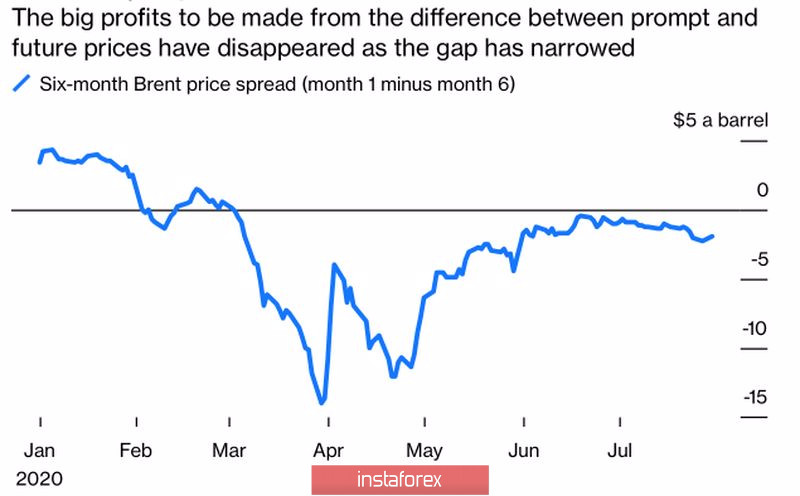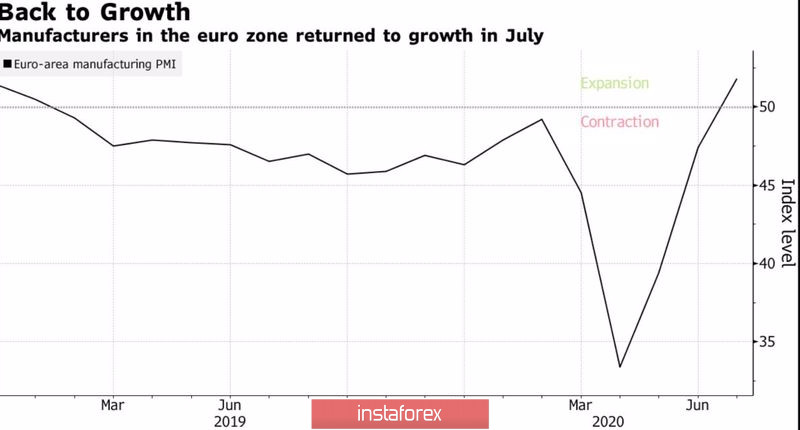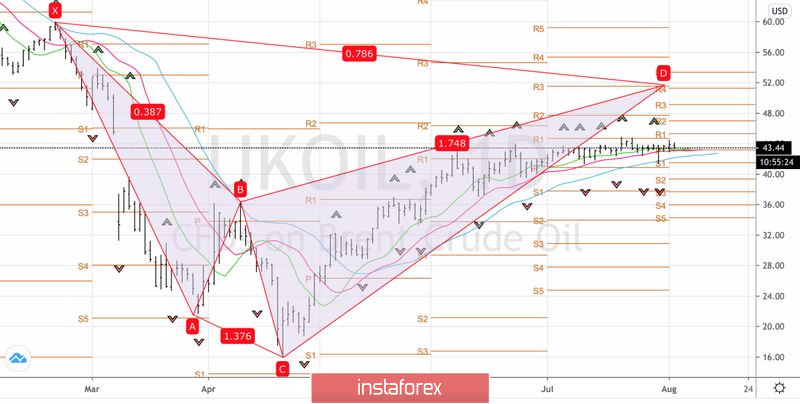When major producing countries start to increase production, and the tense epidemiological situation makes the prospects for global demand dim, oil should fall. But it doesn't fall. Why? Perhaps the weak US dollar is to blame, limiting the desire of the "bears" for Brent and WTI to go on a counterattack? Or are the reasons to look for in the decline in the number of infected COVID-19 in the United States to the lowest level in the last four weeks, which inspires optimism for fans of risky assets and black gold? Who knows? But if the market is not going in the direction that the majority would like to see it, then, as a rule, it is going in the opposite direction.
In July, Russia increased oil production from 9,329 million b/d to 9,371 million b/d, OPEC increased the figure by 900 thousand b/d, to 23.43 million b/d at the expense of Saudi Arabia, the OEA and Kuwait, which previously produced less than required by their obligations to reduce production. In the previous article, I mentioned that American companies are gradually coming back to life. As a result, the contango in the black gold market continues to increase, which indicates an oversupply of oil in the future and is a "bearish" factor for Brent and WTI.
Oil market conditions

Will the spread between futures contracts with long-term and near-term execution widen to March or April values, when black gold felt extremely uncomfortable? Everything will depend on the dynamics of global demand. According to JP Morgan, there are more and more signs that the global economic recovery is on the decline. According to the bank, oil demand may find a new normal level of 90 million b/d, which is significantly lower than the 100 million b/d that occurred before the pandemic.
On the other hand, improved macroeconomic statistics and the persistent reluctance of the S&P 500 and other stock indices to go for a correction indicate that it is too early for optimists to throw a white flag. Business activity in the US manufacturing sector in July grew at the fastest pace since March 2019, in China, private sector purchasing managers' indices showed the fastest growth since 2011, and Europe is not far behind, where hopes for a V-shaped recovery in GDP are still alive.
Dynamics of European business activity

The growth of business activity and the decline in oil reserves in the United States against the background of a tense epidemiological situation in the country look strange, while the improvement of the situation around COVID-19 keeps hopes for a bright future. Much will depend on the statistics on American employment for July, which will either maintain the White House-supported hopes for a rapid economic recovery, or finally dispel illusions about this.
Thus, the oil market environment looks "bearish", but the belief that the glass is half full does not allow Brent sellers to bring quotes outside the consolidation range of $ 41-45 per barrel. Perhaps the bulls can do it? The strategy remains the same: a break of resistance at $ 45 will allow the formation of long positions with a target of $ 51 per barrel.
Brent, the daily chart






















